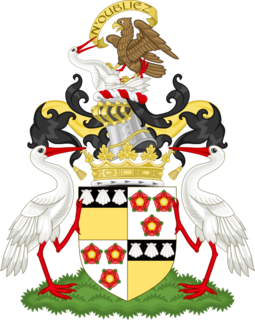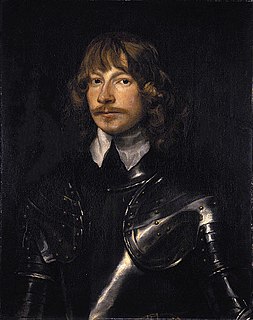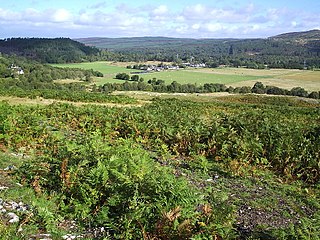See also
- Duke of Montrose
- James Graham, 1st Marquess of Montrose (commonly called "the great Montrose")
- James Graham, 2nd Marquess of Montrose
Montrose is a surname. Notable people with the surname include:
Montrose may refer to:

Duke of Montrose is a title that has been created twice in the Peerage of Scotland. The first creation was in 1488 for David Lindsay, 5th Earl of Crawford. He was forced to forfeit the dukedom later in 1488, but it was restored to him in 1489, although only for his lifetime. Thus, it was not inherited.

James Graham, 1st Marquess of Montrose was a Scottish nobleman, poet and soldier, lord lieutenant and later viceroy and captain general of Scotland. Montrose initially joined the Covenanters in the Wars of the Three Kingdoms, but subsequently supported King Charles I as the English Civil War developed. From 1644 to 1646, and again in 1650, he fought in the civil war in Scotland on behalf of the King. He is referred to as the Great Montrose.
James Graham may refer to:

James Graham, 8th Duke of Montrose, known as Earl of Kincardine until 1954 and Marquess of Graham between 1954 and 1992, is a Southern Rhodesia-born hereditary peer of the Peerage of Scotland and a British Conservative Party politician.
James Graham, 4th Duke of Montrose, KT, PC, styled Marquess of Graham until 1836, of Buchanan Castle in Stirlingshire and 45 Belgrave Square in London, was a British Conservative politician.

James Angus Graham, 7th Duke of Montrose ID, styled Earl of Kincardine until 1925 and Marquess of Graham between 1925 and 1954, was a Scottish-born Rhodesian politician, farmer and aristocrat. He served as Minister of Agriculture in the Rhodesian government of Ian Smith, and in 1965 was a signatory to Rhodesia's Unilateral Declaration of Independence.
Paulet, variant spelling Powlett, is a surname. Notable people with the surname include:

James Graham, 1st Duke and 4th Marquess of Montrose was a Scottish aristocratic statesman in the early eighteenth century.

The Battle of Carbisdale took place close to the village of Culrain, Sutherland, Scotland on 27 April 1650 and was part of the Wars of the Three Kingdoms. It was fought by the Royalist leader James Graham, 1st Marquess of Montrose, against the Scottish Government of the time, dominated by Archibald Campbell, 1st Marquess of Argyll and a grouping of radical Covenanters, known as the Kirk Party. The Covenanters decisively defeated the Royalists. The battlefield has been inventoried and protected by Historic Scotland under the Scottish Historical Environment Policy of 2009. Although Carbisdale is the name of the nearest farm to the site of the battle, Culrain is the nearest village.
Hay is an English and Scottish surname shortened from the Scoto-Norman de la Haye. A common variation is Hayes, and to a lesser degree Haynes, Haines, or Hughes. Notable people with the surname Hay include:
Graham is both an English and Scottish surname. It is a habitational name, derived from Grantham in Lincolnshire, England. The Scottish Grahams traditionally claimed descent from a chief called Grame, but the first authentic bearer of the name was William of Graham in the twelfth century. Notable people with the surname include:
Paget is a surname of Anglo-Norman origin which may refer to:
Gascoyne-Cecil is a surname, and may refer to:
Ávalos is a Spanish surname. Notable people with the surname include:
Blackwood is a locational surname of Scottish origin meaning "black wood". Spelling variations include: Blackwood, Blackwode, Blakewood, Blaikwood, Blacud and many more. First found in Ayrshire, but one of the first recorded to the family name was William de Blackwood in 1327 in Stirlingshire.
Cholmondeley is a surname. Notable people with the surname include:
James Graham, 2nd Marquess of Montrose was a Scottish nobleman and judge, surnamed the "Good" Marquess.
Judge Graham may refer to:

Falco or Falcó is the surname of: